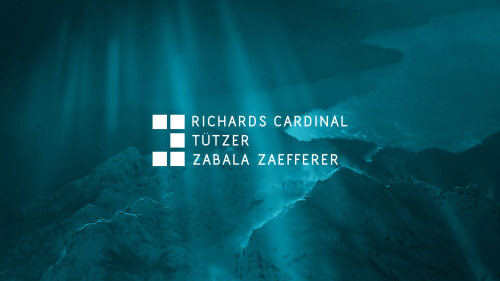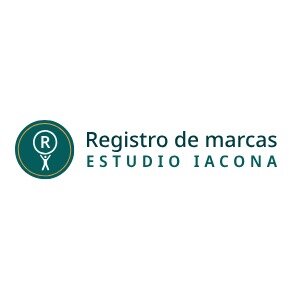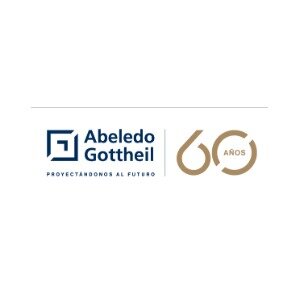Best Art & Cultural Property Law Lawyers in Argentina
Share your needs with us, get contacted by law firms.
Free. Takes 2 min.
Or refine your search by selecting a city:
List of the best lawyers in Argentina
About Art & Cultural Property Law in Argentina
Art & Cultural Property Law in Argentina encompasses the set of legal regulations and practices aimed at protecting the nation’s artistic and cultural heritage. This field of law addresses issues related to the ownership, transfer, preservation, and restitution of artworks and cultural assets. It is influenced by international conventions and the country's commitment to conserving its rich cultural and historical legacy. Argentina has established specific regulations to prevent illicit trafficking of cultural artifacts and to ensure that art-related transactions adhere to ethical and legal standards.
Why You May Need a Lawyer
Individuals and organizations may require legal assistance in the field of Art & Cultural Property Law for various reasons:
- Art transactions: Buying and selling artworks, both within Argentina and internationally, involves complex legal considerations.
- Restitution claims: In cases where artworks have been unlawfully removed or exported, legal support is necessary for restitution proceedings.
- Intellectual property rights: Artists and creators may need legal advice to protect their intellectual property rights and manage licenses.
- Export and import regulations: Navigating the legal framework surrounding the export and import of cultural property can be daunting without expert guidance.
- Conservation and restoration: Legal advice may be needed to ensure compliance with preservation standards and regulations.
- Disputes and litigation: Engaging in or defending against litigation related to art transactions or ownership disputes may require specialized legal expertise.
Local Laws Overview
Argentina's legal framework for Art & Cultural Property Law is composed of several key regulations and standards:
- National Law No. 25743: Governs the protection of archaeologically and paleontologically valuable items within Argentina.
- The 1970 UNESCO Convention: As a signatory, Argentina adheres to rules preventing illegal import and export of cultural property.
- Decree 1022/2004: Establishes mechanisms for the restitution of illicitly exported cultural goods.
- Law No. 15585: Related to the protection of cultural heritage and sites, ensuring preservation and sustainable management.
- Customs regulations: Specific provisions controlling the entry and exit of artistic works, requiring declarations and permits.
Frequently Asked Questions
What is considered cultural property in Argentina?
In Argentina, cultural property includes items of historical, artistic, archaeological, and anthropological significance, such as works of art, artifacts, recordings, and documents deemed to have national patrimonial value.
How can I legally buy art in Argentina?
To legally buy art in Argentina, ensure that the piece is not subject to export restrictions and verify its provenance, working with reputable galleries or auction houses, and consulting legal experts for transactions involving high-value pieces.
Are there restrictions on exporting art from Argentina?
Yes, exporting art from Argentina is subject to strict regulations. Cultural property must undergo an evaluation process to determine its patrimonial value and, if approved, requires special permits.
What should I do if I want to claim restitution of a stolen artwork?
If you seek restitution for a stolen artwork, gather as much documentation and proof of ownership as possible and consult a lawyer specialized in cultural property law to guide you through the legal process and negotiations.
Can cultural property be privately owned in Argentina?
Cultural property may be privately owned, but owners must comply with laws that protect the patrimony, including restrictions on export and requirements for reporting ownership of nationally significant works.
Who is responsible for enforcing cultural property laws in Argentina?
The enforcement of cultural property laws in Argentina is the responsibility of the national and provincial governments, with collaboration from the Ministry of Culture and specific heritage preservation authorities.
What are the penalties for trafficking in cultural property?
Penalties for trafficking in cultural property can include fines, imprisonment, and restitution orders, depending on the severity of the offense and whether international laws are implicated.
How can artists protect their intellectual property rights in Argentina?
Artists can protect their intellectual property rights by registering their works with the National Directorate of Copyright and seeking legal counsel to enforce their rights if infringements occur.
What role does UNESCO play in Argentina's cultural property law?
UNESCO provides international guidelines and conventions that help shape Argentina’s cultural property legislation, promoting international cooperation and setting standards for the protection and restitution of cultural goods.
How can I find out if a piece of art is considered of patrimonial value?
To determine if a piece of art is of patrimonial value, you should consult with the National Ministry of Culture or other relevant cultural heritage authorities, who can assess the item's significance under national laws.
Additional Resources
For further assistance, consider these resources:
- Ministry of Culture: Offers guidance and information on cultural heritage protection.
- National Directorate of Copyright: Provides resources and assistance for intellectual property issues.
- INAPL (National Institute of Anthropology and Latin American Thought): Resource for anthropological and archaeological patrimony.
- Legal associations: Consult local legal associations for referrals to lawyers specializing in Art & Cultural Property Law.
- UNESCO: Engages in global efforts to protect cultural heritage, with documents and treaties relevant to Argentina.
Next Steps
If you need legal assistance in Art & Cultural Property Law in Argentina, consider the following steps:
- Identify your specific needs: Clarify your legal needs, whether it pertains to transactions, disputes, or regulatory compliance.
- Consult legal experts: Seek legal advice from professionals specializing in Art & Cultural Property Law to understand your rights and obligations.
- Gather documentation: Collect and organize all relevant documents, such as ownership proof, permits, and contracts, to ensure a smooth legal process.
- Contact governmental bodies: Engage with local or national authorities responsible for cultural property matters to gain official guidance or permits.
- Monitor changes in legislation: Stay informed about any updates or new regulations in Art & Cultural Property Law to ensure compliance and protect your interests.
Lawzana helps you find the best lawyers and law firms in Argentina through a curated and pre-screened list of qualified legal professionals. Our platform offers rankings and detailed profiles of attorneys and law firms, allowing you to compare based on practice areas, including Art & Cultural Property Law, experience, and client feedback.
Each profile includes a description of the firm's areas of practice, client reviews, team members and partners, year of establishment, spoken languages, office locations, contact information, social media presence, and any published articles or resources. Most firms on our platform speak English and are experienced in both local and international legal matters.
Get a quote from top-rated law firms in Argentina — quickly, securely, and without unnecessary hassle.
Disclaimer:
The information provided on this page is for general informational purposes only and does not constitute legal advice. While we strive to ensure the accuracy and relevance of the content, legal information may change over time, and interpretations of the law can vary. You should always consult with a qualified legal professional for advice specific to your situation.
We disclaim all liability for actions taken or not taken based on the content of this page. If you believe any information is incorrect or outdated, please contact us, and we will review and update it where appropriate.
Browse art & cultural property law law firms by city in Argentina
Refine your search by selecting a city.

















